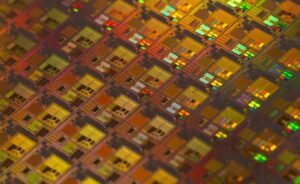Things AI Does
Artificial Intelligence (AI) is a rapidly evolving field that has the potential to revolutionize various aspects of our lives. From computer vision to natural language processing, AI technologies are being implemented in diverse applications. In this article, we will explore some of the key things AI is capable of.
Key Takeaways:
- AI technologies are rapidly evolving and have the potential to revolutionize various aspects of our lives.
- AI can be applied in computer vision, natural language processing, and more.
- Machine learning, a subset of AI, enables computers to learn and make predictions from large datasets.
- AI has the ability to automate tasks, improve efficiency, and enhance decision-making.
One of the key applications of AI is in computer vision. AI algorithms can analyze visual data such as images and videos, enabling computers to “see” and understand the content. This technology has numerous applications, including:
- Object detection and recognition
- Facial recognition
- Image and video classification
Computer vision in AI has the potential to transform industries such as healthcare, security, and autonomous vehicles.
Natural language processing (NLP) is another area where AI is making significant advancements. NLP enables computers to understand and interpret human language, both written and spoken. Some interesting applications of NLP include:
- Chatbots and virtual assistants
- Language translation
- Sentiment analysis
NLP technology allows computers to interact with humans in more human-like ways, improving communication and making information accessible.
Data and Machine Learning
AI relies heavily on large amounts of data for training and learning. Machine learning, a subset of AI, enables computers to learn and make predictions from these datasets. There are two main types of machine learning:
- Supervised learning: In this approach, the computer is trained on labeled data, where it learns to make predictions based on input-output pairs.
- Unsupervised learning: Here, the computer learns patterns and relationships from unlabeled data without any specific output to predict.
Machine learning algorithms can be applied in various domains, such as:
- Financial forecasting
- Medical diagnosis
- Recommendation systems
The ability of AI to automate tasks is one of its most valuable features. By leveraging AI technologies, businesses can automate repetitive and time-consuming processes, freeing up human resources for more strategic tasks. For instance, AI can automate:
- Data entry and processing
- Quality control in manufacturing
- Email filtering and customer support
Tables
| Industry | AI Applications |
|---|---|
| Healthcare | Automated diagnosis, medical imaging analysis |
| Finance | Fraud detection, algorithmic trading |
| E-commerce | Product recommendation, personalized marketing |
Table 1: AI applications in different industries.
| AI Technology | Applications |
|---|---|
| Computer Vision | Object detection, facial recognition |
| Natural Language Processing | Chatbots, sentiment analysis |
| Machine Learning | Financial forecasting, recommendation systems |
Table 2: Applications of different AI technologies.
| AI Impact | Benefits |
|---|---|
| Automation | Improved efficiency, cost savings |
| Decision Making | Enhanced accuracy, data-driven insights |
| Innovation | New products and services, improved user experiences |
Table 3: Positive impacts of AI adoption.
AI continues to advance and find new applications in various industries and domains. With its ability to automate tasks, improve decision-making, and enhance efficiency, AI has the potential to shape the future in remarkable ways.

Common Misconceptions
Misconception 1: AI Can Completely Replace Humans
– AI is meant to assist humans, not replace them.
– Humans still possess important qualities like creativity and critical thinking.
– AI is designed to augment human capabilities, not perform tasks solely on its own.
Misconception 2: AI is a Singular Entity
– AI is not a single entity, but a broad term that encompasses various technologies.
– Machine learning, natural language processing, and robotics are all examples of AI applications.
– Different AI technologies specialize in different tasks and functions.
Misconception 3: AI Has Superhuman Intelligence
– While AI can process information quickly, it does not possess general intelligence.
– AI lacks common sense and cannot understand context and nuances in the same way humans can.
– AI systems are only as intelligent as the data and algorithms that feed into them.
Misconception 4: AI Will Always Be Objective and Unbiased
– AI systems can perpetuate biases based on the data they are trained on.
– If trained on biased data, AI can reproduce and amplify discriminatory patterns.
– Addressing bias in AI systems requires careful data selection, algorithm testing, and ongoing monitoring.
Misconception 5: AI Will Destroy Jobs
– While AI may automate certain tasks, it also creates new job opportunities.
– AI can handle repetitive and mundane tasks, allowing humans to focus on complex and creative work.
– Job displacement due to AI can be mitigated through reskilling and upskilling programs.

AI in Healthcare
The table below showcases the impact of AI in the healthcare industry. With the ability to analyze vast amounts of medical data in real-time, AI has revolutionized diagnosis and treatment methods, leading to improved patient outcomes and reduced costs.
| AI Application | Benefits |
|---|---|
| Medical Imaging | Increased accuracy in detecting diseases such as cancer, improving early detection rates. |
| Drug Discovery | Accelerated identification of potential drug candidates and reduced time-to-market for new medicines. |
| Virtual Nursing Assistants | 24/7 support for patients, helping to manage medications, monitor vital signs, and provide personalized care. |
| Health Monitoring | Continuous tracking of vital signs and early detection of health deterioration, enabling timely interventions. |
AI in Education
Artificial intelligence has also made its way into the education sector, transforming the way students learn and teachers instruct. The table below highlights some noteworthy applications of AI in education.
| AI Application | Benefits |
|---|---|
| Personalized Learning | Adapts to individual student needs, providing tailored content, feedback, and pacing. |
| Automated Grading | Efficient evaluation of assignments and exams, saving teachers’ time and providing immediate feedback to students. |
| Intelligent Tutoring Systems | Offers interactive and customized guidance to students, addressing their knowledge gaps and promoting active learning. |
| Education Analytics | Collects and analyzes data to identify trends, optimize learning programs, and enhance educational decision-making. |
AI in Finance
The integration of AI in the financial industry has revolutionized operations, making processes faster, more accurate, and cost-effective. The table below presents some key applications of AI in finance.
| AI Application | Benefits |
|---|---|
| Fraud Detection | Real-time analysis of transaction patterns to identify and prevent fraudulent activities. |
| Algorithmic Trading | Automated trading systems that leverage AI to make faster, data-driven investment decisions. |
| Customer Service | Chatbots and virtual assistants provide 24/7 support, deliver personalized recommendations, and handle queries efficiently. |
| Risk Assessment | Advanced models that analyze market data and assess creditworthiness, enabling more accurate risk evaluations. |
AI in Transportation
The transportation industry has embraced AI to enhance safety, efficiency, and convenience. The table below demonstrates some notable AI applications in transportation.
| AI Application | Benefits |
|---|---|
| Autonomous Vehicles | Reduces human error, improves road safety, and enables more efficient traffic flow. |
| Traffic Management | Real-time analysis of traffic patterns for optimized route planning, reducing congestion and travel time. |
| Smart Parking | AI-powered systems guide drivers to available parking spaces, minimizing search time and congestion. |
| Logistics Optimization | AI algorithms optimize fleet management, scheduling, and delivery routes, reducing costs and improving efficiency. |
AI in Entertainment
The entertainment industry has harnessed AI to enhance content creation and deliver personalized experiences to users. The table below highlights key AI applications in entertainment.
| AI Application | Benefits |
|---|---|
| Recommendation Systems | AI algorithms suggest content personalized to users’ preferences, enhancing user experience and engagement. |
| Content Generation | AI creates music, art, and written content, enabling faster production and experimentation with new styles. |
| Virtual Reality | AI enhances immersive experiences by generating realistic environments and interactive characters. |
| Emotion Recognition | AI analyzes facial expressions and reactions to evaluate audience engagement and tailor content accordingly. |
AI in Manufacturing
The manufacturing industry benefits greatly from AI’s capabilities to optimize processes, enhance quality control, and streamline production. The table below showcases key applications of AI in manufacturing.
| AI Application | Benefits |
|---|---|
| Predictive Maintenance | AI algorithms anticipate equipment failures, allowing proactive maintenance to minimize downtime. |
| Quality Control | AI-powered systems inspect products with precision to ensure adherence to stringent quality standards. |
| Supply Chain Optimization | AI analyzes data to optimize inventory management, demand forecasting, and logistics, reducing costs and delays. |
| Robotic Automation | AI-enabled robots automate repetitive tasks, enhancing efficiency and reducing human error. |
AI in Agriculture
The agricultural sector is increasingly utilizing AI to optimize farming practices, improve crop yields, and reduce resource wastage. The table below highlights key applications of AI in agriculture.
| AI Application | Benefits |
|---|---|
| Precision Farming | AI guides efficient planting, irrigation, and fertilizer use, resulting in higher yields and reduced environmental impact. |
| Pest and Disease Detection | AI-powered sensors and image analysis identify the early signs of pests or diseases, enabling timely interventions. |
| Crop Monitoring | AI analyzes satellite imagery and sensor data to monitor crop health, allowing targeted interventions for optimal growth. |
| Harvesting Automation | AI-powered robots or drones automate harvesting, reducing labor costs and improving efficiency. |
AI in Retail
The retail industry benefits from AI by enhancing customer experiences, optimizing pricing strategies, and ensuring efficient supply chain management. The table below presents key AI applications in retail.
| AI Application | Benefits |
|---|---|
| Chatbots and Virtual Assistants | Provide personalized product recommendations, answer customer queries, and offer 24/7 support. |
| Inventory Management | AI algorithms optimize inventory levels, reducing stockouts and carrying costs while improving sales. |
| Dynamic Pricing | AI adjusts prices based on demand, market trends, and competitor analysis, maximizing revenue and competitiveness. |
| Visual Search | AI-powered systems recognize and search for products based on images, improving product discovery and customer experience. |
AI in Security
AI plays a crucial role in enhancing security measures, both in physical spaces and cyberspace. The table below illustrates key AI applications in security.
| AI Application | Benefits |
|---|---|
| Facial Recognition | AI identifies individuals for access control, surveillance, and law enforcement purposes, enhancing security measures. |
| Video Analytics | AI interprets video footage in real-time to detect suspicious activities, allowing immediate action to be taken. |
| Cybersecurity | AI algorithms detect and prevent cyber threats, improving defenses against hacking, data breaches, and malware. |
| Smart Monitoring Systems | AI-based systems continuously monitor critical infrastructure, detecting anomalies and potential risks. |
These tables showcase just a glimpse of the vast impact AI has across various industries. From healthcare and education to finance and entertainment, AI continues to shape our world, driving innovation and transforming the way we live and work.
Things AI Does
What is AI?
AI stands for Artificial Intelligence. It is a branch of computer science that focuses on creating machines that can perform tasks that would typically require human intelligence.
How does AI work?
AI systems work by using algorithms and large amounts of data to learn and make predictions or decisions. These algorithms are designed to mimic human cognitive abilities, such as learning, reasoning, and problem-solving.
What are the main applications of AI?
The applications of AI are vast and diverse. Some common applications include natural language processing, computer vision, robotics, virtual assistants, recommendation systems, and autonomous vehicles.
How does AI improve our daily lives?
AI has the potential to improve our daily lives in numerous ways. It can automate mundane tasks, enhance personalized experiences, provide valuable insights, improve efficiency, and enable new forms of innovation and discovery.
Are there any risks associated with AI?
Yes, there are risks associated with AI. These risks include job displacement, biases in decision-making algorithms, privacy concerns, security vulnerabilities, and the potential for AI systems to be used for malicious purposes.
What is machine learning and its role in AI?
Machine learning is a subset of AI that focuses on the development of algorithms that allow computers to learn from and make predictions or decisions based on data. It is a crucial component of AI as it enables systems to improve their performance over time without being explicitly programmed.
How does AI impact industries?
AI has a transformative impact on various industries. It has the potential to optimize operations, automate processes, improve decision-making, enable personalized experiences, and drive innovation across sectors such as healthcare, finance, manufacturing, transportation, and entertainment.
Can AI replace human jobs?
AI has the potential to automate certain tasks and roles, which may lead to job displacement in some industries. However, AI also creates new job opportunities and allows humans to focus on more complex and creative tasks that require human ingenuity.
What are the ethical considerations surrounding AI?
Ethical considerations in AI include ensuring fairness and avoiding biases, protecting privacy and security, promoting transparency and accountability, addressing the potential societal impact of AI, and establishing regulations and guidelines to govern its development and deployment.
What is the future of AI?
The future of AI is promising. Advances in AI technologies such as deep learning, reinforcement learning, and natural language processing continue to push the boundaries of what AI can achieve. AI is expected to play a pivotal role in shaping various aspects of society, from healthcare and education to transportation and entertainment.




